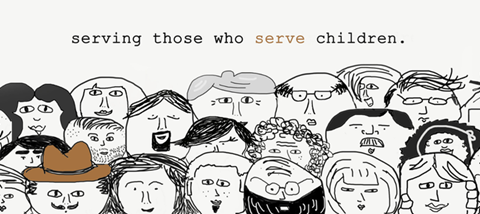
Many children know that God loves them, but they have a hard time believing that God likes them. In other words, they KNOW that God is love, and that He has done a lot of amazing things to prove His love for them, but they don’t feel loved by God.
To such children, God’s love is a fact—one that they’ve heard, memorised and repeated a million times, but it’s not a felt experience. To them, God’s love is like a multiplication table. They memorised it. They know it. They refer to it. But it never touches their soul. It never floods their innermost being with love, peace, hope, and comfort.
Chances are, children will never tell us that they have no living experience of God’s love. Even if they did find the words and the courage to admit that they struggle with FEELING God’s love, what would most of us do?
We would quote a Bible verse, or two. We would remind them that our relationship with God is based on faith and not feelings. We would explain that our emotions cannot be trusted and that they often deceive us. We would give them a hug and tell them we will be praying for them.
And in doing all this, we would miss an incredible opportunity to invite children into experiencing God’s love.
Yes, it’s true that God’s love isn't limited to a feeling. It goes beyond feelings. But it is also true that God’s love touches our emotions. It stirs us, moves us, compels us, overwhelms us, heals us, warms us, energises us, excites us, invades us, awakens us, empowers us, changes us.
What a tragedy it would be to go through life knowing that Jesus died and rose again, that He loves me, yet never having an experience of this love.
Isn’t this a wonderful invitation?
God doesn’t just invite us to read about His love, study it, analyse it, memorise it, and simply believe in it.He invites us to taste it! To experience it for ourselves! Here’s how it works:
We KNOW that God loves us through the cross: “God demonstrated His own love for us in this: While we were still sinners, Christ died for us” (Romans 5:8).
We ACCEPT God’s love through the Holy Spirit: “God has poured out his love into our hearts by the Holy Spirit, whom He has given us” (Romans 5:5).
We UNDERSTAND God’s love through the Word: “This is love: not that we loved God, but that He loved us and sent His Son as an atoning sacrifice for our sins” (1 John 4:10).
We EXPERIENCE God’s love through the community: “Dear friends, since God loved us that much, we surely ought to love each other. No one has ever seen God. But if we love each other, God lives in us, and His love is brought to full expression in us” (1 John 4:11-12).
Did you catch it? God’s love becomes complete, or it gets brought to its full maturity through the human experience in the family of faith. In other word, God created church (and family!) to be a primary place where His love becomes tangible and feels real. When we love one another well, this causes us all to see God and His love for us and know that its real!
Here are some practical ideas how you can turn your classroom time into a lavish feast where children get to “taste and see” God’s marvellous love:

Hershey's Kisses Relay
Supplies: a table, a cup, a tub with Hershey's kisses, masking tape, 2 pairs of work gloves, 2 bowls, sandwich bags
Using the masking tape, make a line on the floor. Divide the children into two even teams and have each team form a single file behind the line. Place the table with a tub of Hershey’s Kisses on the opposite end of the classroom. Set two empty foam bowls on each side of the candy tub.
Give the first player on every team a set of gloves. Have them put them on.
When you say “Go!” they will run to the bowl, pick a candy and unwrap it while wearing gloves. Make it clear that they can only use their hands—no teeth to unwrap the kiss.
Once the candy is unwrapped, they should place it in their team’s empty bowl and return to the team to tag the next player. Then they should take off the gloves and give them to the person they tagged.
Repeat the process until one group wins. A group wins when everyone on the team successfully unwrapped a chocolate kiss. Pack all the unwrapped candy into sandwich bags. Let the winning team take them home as prizes when the class is over.
Have everyone sit down. It was fun watching you unwrap those kisses. Today we will try to unwrap something that is sweeter and more incredible than all the chocolate kisses in the world. Can you guess what I am talking about?
Allow a couple of guesses. God’s amazing, never ending love!
Hold a Hershey’s Kiss. So many people know ABOUT God’s love, but they never really tasted it. It’s like there’s some kind of a wrapper around it that keeps God’s love away from them. Some people believe that God loves only good people. But when they look at themselves, they just see everything that’s wrong with them. They feel unlovable and unworthy, so they never dare to reach out and taste God’s love. How sad is that?!

Spitting Image
Supplies: art-roll, scissors, markers
As children gather, warmly greet them, and spend a little time catching up with them. Then invite them to lie down flat on a large piece of butcher paper.
Trace the outline of each child’s body on the paper. Kids could do this for each other as long as they’re careful enough not to leave marker markings on others clothes.
Once the outline is traced, have each child draw in the features (face, clothes, etc.) that will turn the drawing into the “spittin’ image” of himself or herself. If you want, have the children cut “themselves” out.
After everyone has completed “themselves,” have everyone form a circle on the floor. Explain that each of us has two sides—the outer self (the part that everyone sees—our height, the color of our eyes and hair, our talents and abilities) and then there’s an inner self—that is who we are on the inside.
Have the children turn their people and write a few things that would describe what they are like, how they perceive themselves—kind, mean, lazy, talented, good, bad, beautiful, smart, and ugly.
This is a chance for honesty, so you don’t want kids to think that they need to put only the pretty stuff. Encourage them to be honest about how they see themselves? How do parents, teachers, coaches, grandparents, and so on see you?
NOTE: Self-awareness may not come easy to some kids, but don’t give up on them too quickly. Don’t rush through this exercise and don’t put words in kids’ mouths. Instead ask questions and let them dig for a way to articulate what they think and feel deep inside.
Finally ask, what do you think Jesus thinks of you? When He looks down from Heaven at you—at home, at school, as you wake up, as you brush your teeth or sit at the dinner table, as you watch TV or play with friends-what do you think He is thinking to Himself?
Or if He is surrounded by angels, what does He tell them about you? This is a big one. Again, don’t make kids’ thinking for themselves by giving them suggestions like “redeemed, loved, forgiven, precious, etc.”
This exercise is not about getting all the “right” answers. It’s about getting to the truth, because the truth, no matter how ugly it is, is where God meets us.
It’s possible that some kids may put negative descriptors like “Jesus is disappointed/unhappy with me,” and it’s OK.
Point kids to Romans 5:8 and talk about the love of God and how our worth is determined by the cross, by the price God was willing to pay for us, and NOT by what others say about us or even what we ourselves think about ourselves. Spend some time talking about the meaning of the cross and empty tomb and how we can find our worth in what Jesus has accomplished.

Circle of Blessing
Supplies: “special chair”, markers, lots of foam heart shapes, treats
Stay in the circle on the floor. Set the “Blessing Chair” in the middle. (Prepare the chair ahead of time. You can go fancy—balloons, ribbons, streamers, cloth, throw, etc. or plain—just set a classroom chair, tape a “Blessing Chair” sign and that’s all.)
Invite children one by one to take a seat on the blessing chair. Have one of the leaders speak words of life over this child (things that you have observed about this child, things that you like and appreciate about them).
Then take a marker and in bold letters write just one word that describes this child on the back of their paper-self.
If you can’t think of anything good to say about a child, if your perception of them is predominantly negative, then do this—think of those negative descriptors and turn them around.
Blessing has a power to call things out, to draw out qualities that are not evident yet. That’s what God did with Abraham—calling him a father of many nations while he was childless. And that is what God did with Gideon—calling him a mighty warrior while Gideon was cowardly hiding in the winepress.
So take the negative, turn it around, and declare it over the student. You can do it, because it is God’s will for them, and maybe be they need to start seeing themselves in a new light before they start acting accordingly.
Maybe they need you to believe that they are good before they can do it on their own.
Your blessing doesn’t have to be lengthy, but it has to be sincere. Eye contact is a must. Get down on your knees, look a child straight into their eyes, and let the Spirit of God deliver life to them through the words you speak.
Conclude with giving a hug and having everyone cheer for this child. The entire class can chant this child’s name out loud.
You may also go big by giving each child a handful of foam hearts. Create a “love rain“ by having everyone say, “We love you _______ (child’s name)” and showering them with foam hearts. Do the same for each child. (Don’t worry, you don’t need to buy a truck full of heart shapes. It’s OK if the children pick them up from the floor for the next “love rain“.)
Say: When Jesus lived on earth, He met many people that had no idea just how much God loved them. So to help them understand, He told them this story. Play the video.
I Will Always Love You
Supplies: 4 red cups labelled “spring,” “summer,” “fall,” “winter”, 5 Hershey’s Kisses in each cup, 4 dice, bag of Kisses, hats, streamers, noisemakers, confetti
Let’s play a game that will help us understand just how amazing God’s love is. Split the class into four teams according to the seasons of their birthday. Set up 4 red cups where everyone can see them. Each cup contains 5 chocolate kisses. The goal of the game is not to lose your candy before the other teams do. The game is over when one of the teams loses all of its kisses.
You keep your kisses by rolling an even number; you lose your kisses by rolling an odd number. Each time you roll 1, 3 or 5, I’ll take one kiss out of your team’s cup.
Allow teams to take turns rolling the die. The team that runs out of kisses first loses the game.
Have everyone form a circle and have the losing team get in the middle of the circle. This team represents the prodigal son. They lost all their candy just like the son in the story lost all of his father’s money. However, what he discovered was that he could run out of money and friends but he could never run out of his father’s love. So the rest of us are going to represent the father in the story, and we are going to throw a party for the losing team. Here are some hats, streamers, noisemakers and confetti for you to use. Let’s cheer for them and make them feel loved and accepted even though they lost the game.
Give students a couple minutes to party, and then gather them in a circle.
- To the party throwers: How did it feel to throw a party for people on the losing team when they really didn’t deserve it?
- To the losing team: How did it feel to be celebrated when you didn’t deserve it?
- To everyone: How did the father respond to his son’s returning home? What does this tell us about how God feels about us?
Allow a few moments for the truth to sink in.
The son felt ashamed of himself and unworthy of his father’s love, yet the father couldn’t stop loving his son. His love was bigger than his son’s mess-ups. Bring out a bag of Hershey’s Kisses to illustrate the lavish affection the father poured on his son.
This blog is re-posted from We Are Kidmin. To find out more, visit https://wearekidmin.com/.




























